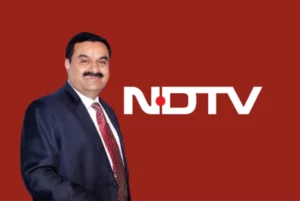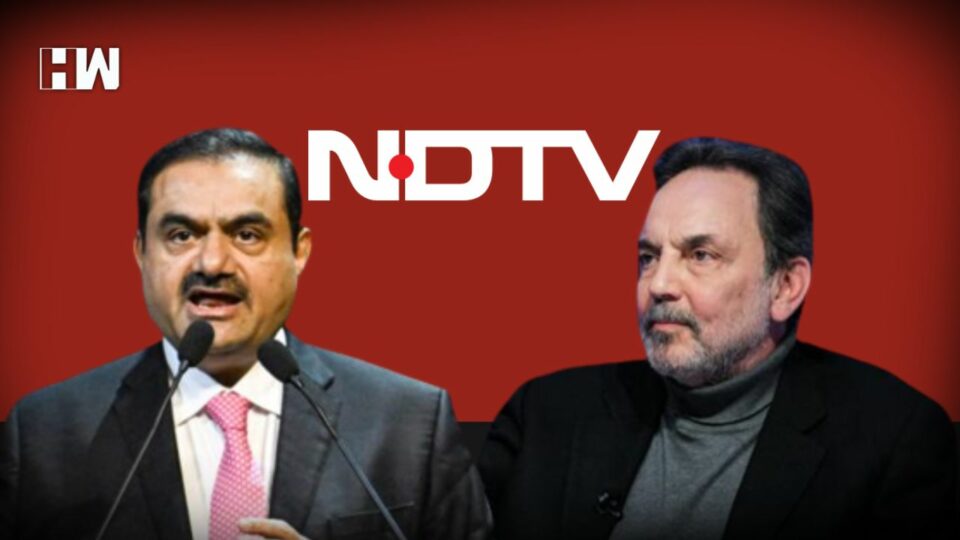On August 23, Adani Group, led by Gautam Adani, the third richest person in the world, announced to buy 29.18% shares in NDTV through Vishvapradhan CVCPL
ommercial Pvt Ltd (VCPL), a wholly owned subsidiary of AMG Media Network, the media arm of Adani Enterprises. The news sparked a lot buzz around the future of nature of news broadcasting and standard of journalism claimed to be upheld by NDTV so far. Let’s unwind and dissect the repercussion of this development and let’s also look at this development from trajectory of Indian journalism so far in a overview sense.
Indian media and journalism in particular is going through a rough patch of litmus test for it to be standing true to they integrity and hold the torch of journalistic ethics high. In recent times we have observed many big media houses both in print and electronic medium have been shifting conveniently political narrative that suits the interest of incumbent power. It is almost as if media appropriately avoid to be critical of incumbent power at the cost of not coming across as to be cynical of the same. Veteran political political leader LK Advani had famously drawn a sharp and a blunt observation about Indian media during the days of Emergency in 1975 saying “You were only asked to bend, but you crawled.” The current condition of Indian media will surely give a sense of dejavu to especially those who have lived through era of emergency. However for this to happen one would they conscience in right place. Cutting the long chase short it is very much evident in the views of many political observers and commentators that NDTV is one of the few to toe the line by the rhythmic tunes of the pied piper. The recent development is being viewed as the last few nails to the coffin. What’s in store for NDTV can only be seen in the times to come but lets take look at few landmark shifts and scale of achievement in the journey of Indian journalism and media.

Democracy survives through the collective will of people within the established process of law. Democracy survives when independence of Judiciary is ensured and freedom of press is made available within the due process as established by law. Great minds of deliberative democracy school of thought envisaged a vibrant democracy from its deliberative and participating citizens in the decision-making process. The idea of progressive democracy is also familiarizing oneself with the socio- political and economic climate that effects the citizens on a regular basis. In words of our late President APJ Abdul Kalam “Heart of India’s democracy lies in the hands and minds of our youth”. In the era of buzzing load of information from around the world on our fingertips, it is important to raise tipping concern within our society. The role of media is very crucial for a more responsive democracy.
Our freedom fighters fought relentlessly for the freedom of Press during the phase of national movement for Independence. Social Reformers and freedom fighters like Raja Ram Mohan Roy, Bal Gangadhar Tilak, Bhagat Singh, Mahatma Gandhi, B.R Ambedkar and many others used the medium of lingual newspapers to awaken the people from different regions and unite them for a freedom struggle. Freedom of press has played an important role in shaping the course of India’s political history. The role of print media has been very significant during the phase of Emergency (1975- 77), JP Movement, Agitation against Mandal commission and many other mass movement that were organized for the sole intent of a major political change. In a post globalization era the role of different forms of media has transform at a multi-fold level. All forms of media right from print, electronic and digital media have been relentlessly involved in shaping public opinion and setting the tone of political narrative. Post globalization is also marked as an era of coming up of private news network and private enterprises investing significantly in print media through revenue generation for big media houses or also by occupying big ad space in newspapers.

The sudden shift post globalization in the functionality of print or electronic media brought a tilt in the way reportage or news was being delivered at the very grass root level. The transition also brought with itself a beginning of the era of journalism with the intent of camouflaging reality. It simply meant mixing fiction with reality and presenting it as news. Many big corporate houses started investing heavily on different media organizations with the intent of moulding the political narrative for the interest of political party in power. This modus- operandi became more diversified and vibrant post 2014 in the form of what we today know as ‘Godi Media’. Where journalism is no more reporting news that matters but is about sycophancy. The era can also be noted for influencing the public interest for the benefit of private interest by being impressionist for the political parties in power.
Attempt to look for a way forward one can only hope for a light of optimism in digital media platform slowing expanding in a multi- lingual format to penetrate into the grass root. Digital media still is able to facilitate an environment of independent and free from any form of influence to those journalist who believe in playing books and sticking to the ethical part of journalism. Though it is still long way to go until it catches up with audience reach of electronic and print media. However it might also not be too late till the squid game of belling the cat begins with digital media as well.
As an independent media platform, we do not take advertisements from governments and corporate houses. It is you, our readers, who have supported us on our journey to do honest and unbiased journalism. Please contribute, so that we can continue to do the same in future.

